Committed to creating a safeguarding culture
At Red Balloon Educational Trust (RBET) – Norfolk we are committed to safeguarding and promoting the welfare of all our young people, keeping them safe and protecting them from harm. Safeguarding is quite simply everyone’s responsibility and the most important part of our job.
Safeguarding at RBET- Norfolk is based on trusting relationships with our young people and giving them the confidence to speak to us if they have concerns knowing that we will listen. As such, all of our staff receive annual Child Protection and Safeguarding Training as well as regular updates in terms of signs of safety and indicators of abuse. Equally, we want to support our families by offering early interventions, advice and support whilst always having the individual student at the Centre of what we do.
We aim to:
- Keep our site secure and ensure that all visitors are recorded and monitored.
- Follow safer recruitment practices to prevent those who pose a risk to children gaining access to our young people.
- Equip our young people to understand the importance of e-Safety both at the Centre and at home.
- Filter and monitor all internet traffic, through Smoothwall, into the School to ensure that our young people cannot be exposed to harmful material and communication.
- Ensure that all staff employed by RBET – Norfolk have received Enhanced Disclosure and Barring Service (DBS) clearance which is recorded in the Single Central Record.
- Ensure that admission and attendance procedures are robust to protect young people.
- Ensure all staff and students know who the trained Designated Safeguarding Leads are
Our Designated Safeguarding Leads will:
- Be available to offer help and advice to young people, staff, parents and guardians.
- Share information with other agencies and services to ensure that students and their families have support to meet their needs and prevent young people from harm.
- Take immediate action, contacting the appropriate agencies when we believe that a young person is in danger or is at risk of harm.
Our Safeguarding Team
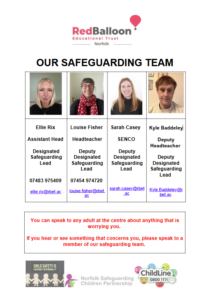
A Designated Safeguarding Lead (DSL) is a member of staff who has lead responsibility for child protection issues in school.
All of our DSLs attend an initial 2-day Child Protection course delivered by Safeguarding specialists from Norfolk County Council. This training is updated every two years.
In addition, all DSLs attend Multi Agency training in specific specialist areas of safeguarding such as domestic abuse, neglect, Childhood Sexual Exploitation etc.
At RBET- Norfolk all of our DSLs can be recognised by their purple lanyards, as pictured and are always there to support not only our young people but also our families.
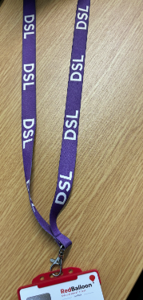
Reporting a Safeguarding Concern
If you are concerned about a young person or an adult at RBET – Norfolk please click on the button above. This will take you to a form to report your concerns to our Designated Safeguarding Lead.
Support for Young People and their Families
Children’s Advice and Duty Service (CADS)
Norfolk County Council uses the Children’s Advice and Duty Service (CADS) to help ensure that all children receive the right support as soon as safeguarding concerns are raised.
This is run by a team of senior social workers who provide advice and support to other professionals who are worried about a child, talking through the risks and strengths within families and agreeing together who is best placed to meet the child’s needs.
As a school all, of our DSLs (and additional staff) can and do make contact with CADS when they have a specific concern about a child and need further professional advice.
Members of the public who have concerns about the safety of a child should continue to call the same number 0344 800 8020. If it is an emergency, dial 999.
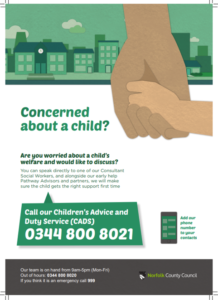
Domestic Abuse Information
Domestic violence, also called domestic abuse, includes physical, emotional and sexual abuse in couple relationships or between family members.
Support at RBET- Norfolk
•Ellie Rix- Domestic abuse champion
•Safeguarding Leads
•Key workers
•Safeguarding section of website
Leeway support for young people:
In the Centre, students are able to access support from Leeway through a referral process. If you feel that your child or someone you know would benefit from this, please make their key worker or Ellie Rix aware, so they can make the referral.
Support outside of school – Support to cope
- Clare’s Law (Domestic Violence Disclosure Scheme) – For Partners
- Sarah’s Law (The Child Sex Offender Disclosure Scheme) – For friendships
- Hollies Guard- App
- Bright Sky – App
- Leeway
- Victim Support
- Connect/ Spurgeons
- Orwell (Haven Project)
- Pandora (for women)
- Daisy
- GALOP(LGBT)
- One Voice(support for travellers)
- Men’s advice line
- National Domestic Violence Hotline
- Refuge (For women and children)
- Paladin (Stalking) https://paladinservice.co.uk/
Support to Recover
- Freedom Programme – Action for Children and the Daisy Programme
- Power to change- Leeway
- Open the Box Programme
- Counselling – Off the record, MAP, One-to-One project, Mind, Norwich Centre
- Child Parent Violence
- Family Lives
- Young Minds Parents Helpline
- Pandora Norfolk
- Spurgeons
Online Safety
Online Safety is an integral part of safeguarding and our PSHCE curriculum plays an important role in educating our young people on how to keep safe online. Young people are also reminded of the importance of keeping safe through regular community and key worker time.
The online world is posing an ever-increasing risk to children and as part of safeguarding for our young people, it is important that RBET- Norfolk, families work together to take an active role in teaching children about the dangers online. Below are some links to websites which provide a vast range of information, support and advice which parents and carers may find useful to help keep your children safe online.
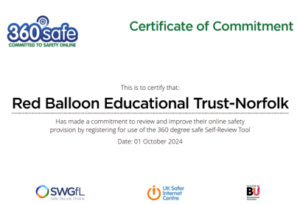
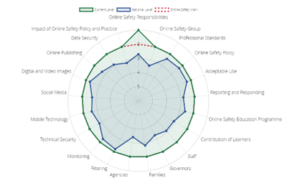
Support:
Parent Info is a collaboration between Parent Zone and NCA-CEOP, providing support and guidance for parents from leading experts and organisations
Thinkuknow is the education programme from NCA-CEOP, a UK organisation which protects children both online and offline. There are lots of resources and advice under their parents and carers section. It is also a place where young people can get advice and support about sex, relationships and the internet
Tips, advice, guides and resources to help keep your child safe online. As a parent or carer, you play a key role in helping your child to stay safe online. You don’t need to be an expert on the internet to help keep your child stay safe online. Our advice and resources are here to support you as you support your child to use the internet safely, responsibly and positively.
CEOP helps any child or young person under the age of 18 who is being pressured, forced or tricked into taking part in sexual activity of any kind. This can be something that has taken place either online or in ‘the real world’, or both. The CEOP Safety Centre has clear information and advice on what can be reported to CEOP, the reporting process and what will happen if you do decide to make a report. You can visit the CEOP Safety Centre and make a report directly to CEOP by clicking the Click CEOP button.
The Internet Watch Foundation (IWF) has created the world’s first tool to help children and young people get naked images of themselves removed from the internet.
The Report Remove Tool can be accessed through the Childline website. IWF analysts will then review the content and create a unique digital fingerprint known as a hash, before sharing it with tech companies to help prevent it from being uploaded and shared.
Operation Encompass

Red Balloon Educational Trust- Norfolk will be taking part in a jointly run operation between Norfolk County Council, Norfolk Police and us, it is called Operation Encompass. Encompass has been set-up to help schools to provide support to children who have
been present at incidents of domestic abuse & violence. We know that children can be significantly physically or emotionally harmed when they are involved in, present or witness domestic violence.
We are keen to offer the best support possible to our pupils and we believe this is going to be extremely beneficial for all those involved.
Find out more here.
Prevent
The aim of Prevent is to stop people from becoming terrorists or supporting terrorism. Prevent also extends to supporting the rehabilitation and disengagement of those already involved in terrorism.
The Prevent duty requires specified authorities such as education, health, local authorities, police and criminal justice agencies (prisons and probation) to help prevent the risk of people becoming terrorists or supporting terrorism. It sits alongside long-established safeguarding duties on professionals to protect people from a range of other harms, such as substance abuse, involvement in gangs, and physical and sexual exploitation. The duty helps to ensure that people who are susceptible to radicalisation are supported as they would be under safeguarding processes.
You can find further information here: Prevent duty guidance: for England and Wales (accessible) – GOV.UK (www.gov.uk)
If you would like to make a referral under Prevent please complete the form below and return to DSL or directly to the police:
RBET Norfolk’s Whole Centre Approach Sexual Harassment
At RBET- Norfolk we believe that all pupils have a right to be safe, healthy and happy. Therefore, safeguarding our young people is everyone’s responsibility. This belief drives and underpins all that we do daily. We are in the privileged position to offer support, advice and care to the whole Centre community and commit to working with our families and support agencies to achieve this, ensuring our CYP can flourish and live life in its fullness.
Find out more about our whole centre approach.


